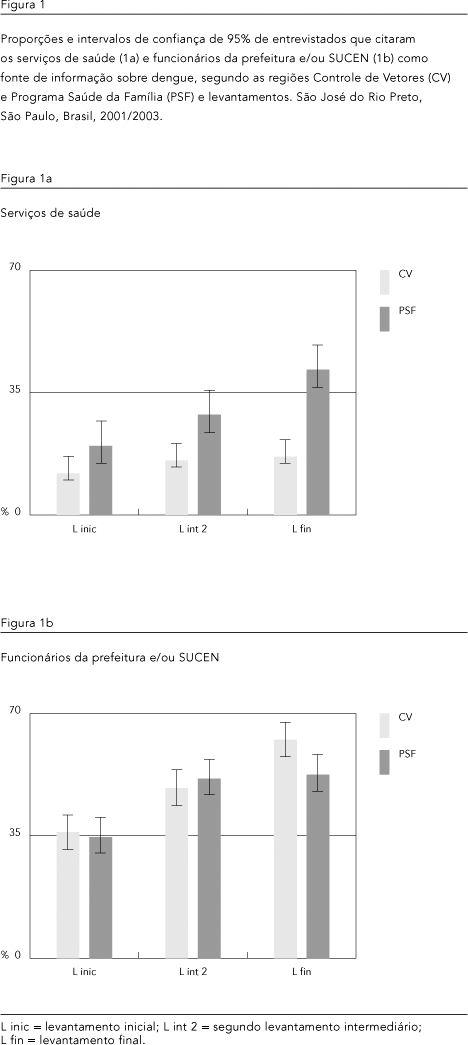A study was performed in different areas of São José do Rio Preto which include the Family Health Program (FHP) and the Dengue Control Program, and the results of integration between the two programs were evaluated. In addition to other responsibilities, community health agents instructed residents on dengue control measures, encouraging the population to adopt the practices in areas with the FHP. Vector control agents were responsible for breeding site control and instructed local residents on the Dengue Control Program. From 2001 to 2003, surveys were conducted to measure residents' dengue control knowledge and practices. The proportions of residents in the FHP area that reported health services as a source of information increased significantly as compared to the other area. There were significant changes concerning the increase in information about the disease and reduction in vector breeding sites. The results show that integration between the programs is possible and could help optimize resources, avoiding duplicity of procedures and fostering greater community involvement in dengue control.
Dengue; Aedes aegypti; Vector Control; Health Family Program





